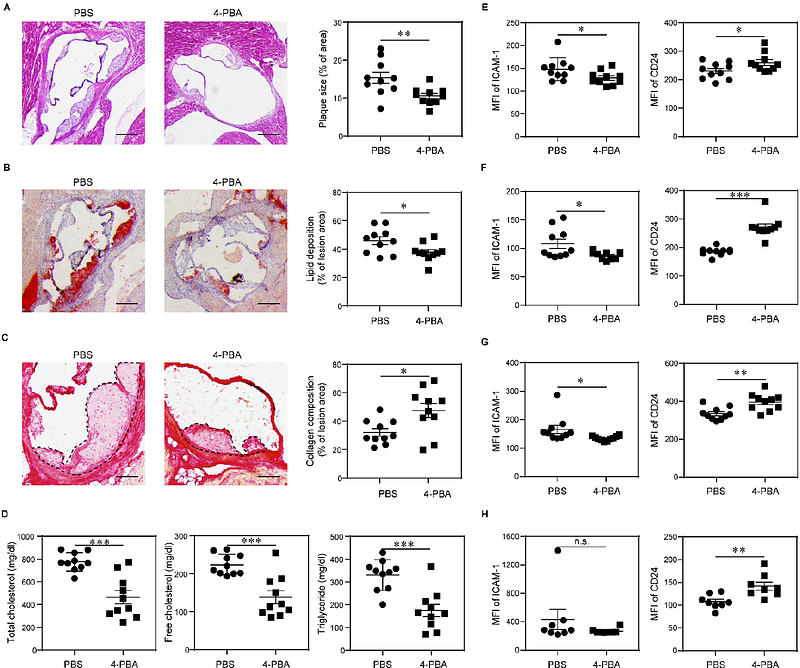Monocytes reprogrammed by 4-PBA potently contribute to the resolution of inflammation and atherosclerosis

Monocytes reprogrammed by 4-PBA potently contribute to the resolution of inflammation and atherosclerosis
Geng, S.; Lu, R.; Zhang, Y.; Wu, Y.; Xie, L.; Caldwell, B. A.; Pradhan, K.; Yi, Z.; Hou, J.; Xu, F.; Chen, X.; Li, L.
AbstractBackground: Chronic inflammation initiated by inflammatory monocytes underlies the pathogenesis of atherosclerosis. However, approaches that can effectively resolve chronic low-grade inflammation targeting monocytes are not readily available. The small chemical compound 4-phenylbutyric acid (4-PBA) exhibits broad anti-inflammatory effects in reducing atherosclerosis. Selective delivery of 4-PBA reprogrammed monocytes may hold novel potential in providing targeted and precision therapeutics for the treatment of atherosclerosis. Methods: Systems analyses integrating single-cell RNA-sequencing and complementary immunological approaches characterized key resolving characteristics as well as defining markers of reprogrammed monocytes trained by 4-PBA. Molecular mechanisms responsible for monocyte reprogramming was assessed by integrated biochemical and genetic approaches. The inter-cellular propagation of homeostasis resolution was evaluated by co-culture assays with donor monocytes trained by 4-PBA and recipient naive monocytes. The in vivo effects of monocyte resolution and atherosclerosis prevention by 4-PBA were assessed with the high fat diet-fed ApoE-/- mouse model with i.p. 4-PBA administration. Furthermore, the selective efficacy of 4-PBA trained monocytes were examined by i.v. transfusion of ex vivo trained monocytes by 4-PBA into recipient high fat diet-fed ApoE-/- mice. Results: In this study, we found that monocytes can be potently reprogrammed by 4-PBA into an immune-resolving state characterized by reduced adhesion and enhanced expression of anti-inflammatory mediator CD24. Mechanistically, 4-PBA reduced the expression of ICAM-1 via reducing peroxisome stress and attenuating SYK-mTOR signaling. Concurrently, 4-PBA enhanced the expression of resolving mediator CD24 through promoting PPAR{gamma} neddylation mediated by TOLLIP. 4-PBA trained monocytes can effectively propagate anti-inflammation activity to neighboring monocytes through CD24. Our data further demonstrated that 4-PBA trained monocytes effectively reduce atherosclerosis pathogenesis when administered in vivo. Conclusion: Our study describes a robust and effective approach to generate resolving monocytes, characterizes novel mechanisms for targeted monocyte reprogramming, and offers a precision-therapeutics for atherosclerosis based on delivering reprogrammed resolving monocytes.